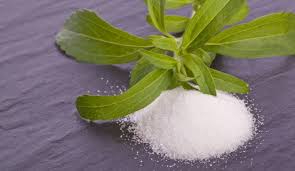3 Easy Steps to Set Up Your Appointment
- Fill out the form.
- We will call you within one business day to confirm.
- Show up and receive topnotch care for your pet.
If you need to change your appointment, give us a call at least 24 hours before your scheduled time.
Important Note:
Do not use the appointment form in case of an emergency. Call or visit us right away.
If your pet has a medical emergency, please telephone us immediately at 914-941-4904 to schedule an appointment. Our dedicated team of veterinarians and technicians are available around the clock to provide expert care for your pet.
PLEASE CALL FOR AVAILABILITY. APPOINTMENTS ARE REQUIRED, EVEN IN THE CASE OF AN EMERGENCY.
Our address is: 513 North State Rd. Briarcliff Manor, NY 10510
Click here for directions to our location.

Xylitol Products: The Unknown Killer
You might not know it, but xylitol is the unknown killer for pets. When ingested by humans, Xylitol products are an effective sugar-free blood sugar stabilizer; when ingested by animals, Xylitol could be deadly. In order to effectively remove it as a threat, we must educate ourselves about its potency and learn preventative measures to insure household pets from digesting this toxin.
XYLITOL & PEOPLE
Xylitol is a natural sugar free sweetener popularly used in a variety of food & dental products because of its low glycemic index. It is popular among diabetic products because its slow absorption rate allows blood sugar levels to stay at a more constant level. It is found in products including, but not limited to, gum, chocolate, soda, toothpaste, vitamins, syrup, cookies, peanut butter, and more. For a list of common products that contain Xylitol, please click here.
XYLITOL & ANIMALS
The ingestion of Xylitol ingestion by household pets, especially cats & dogs, is extremely dangerous and can be deadly. In cats & dogs, the ingestion of xylitol can trigger a dangerously sudden insulin release, resulting in low blood sugar, i.e. hypoglycemia, or acute hepatic necrosis (sudden liver failure).
Xylitol ranks higher on the list of toxic foods for animals than chocolate primarily because of its potency. In fact, a potentially toxic dose of Xylitol for a small dog weighing 10 pounds or less is just .8 oz. – that’s approximately the weight of a slice of bread or 4-5 quarters.
PREVENTION
The best preventative measure to reduce the risk of your pet ingesting Xylitol is to be vigilant and read the ingredients of all household ingredients. If the ingredients listed contain Xylitol, either get rid of those products, or move them to a safe place where your pet can never access them.
Xylitol is listed in various ways in the ingredient list, so make sure to read all labels thoroughly and look for keywords that indicate a food contains Xylitol products. Especially look out for packaging that use the terms “sweetened naturally”, “sugar-free”, or “no sugar added”. Also look out for ingredients, which include “sugar alcohols” without naming Xylitol specifically. Sugar alcohol is a broad term given to multiple types of sugar alcohols. For example, while glycerol is not known to be toxic to animals, Xylitol is highly toxic.
While it is not likely that Xylitol products will become so mainstream that it replaces most sugar in foods, it is now being introduced into foods that cross over into mainstream pet remedies. Ever need to give your dog medication and they refuse to take it? While the age old remedy is to slip the medication in a dab of peanut butter, you now must check the ingredients of your peanut butter because it might contain Xylitol.
Animal Health Center at Veterinary Village is a family-owned, state-of-the-art animal hospital located in the heart of Westchester County. We are dedicated to providing the highest quality of care to our patients and are passionate about educating our clients and their caretakers on healthy lifestyles. For more information on our pet services please visit our website at www.emergencyvet.org, or make an appointment to meet with one of our medical professionals by calling (914) 941-4904
